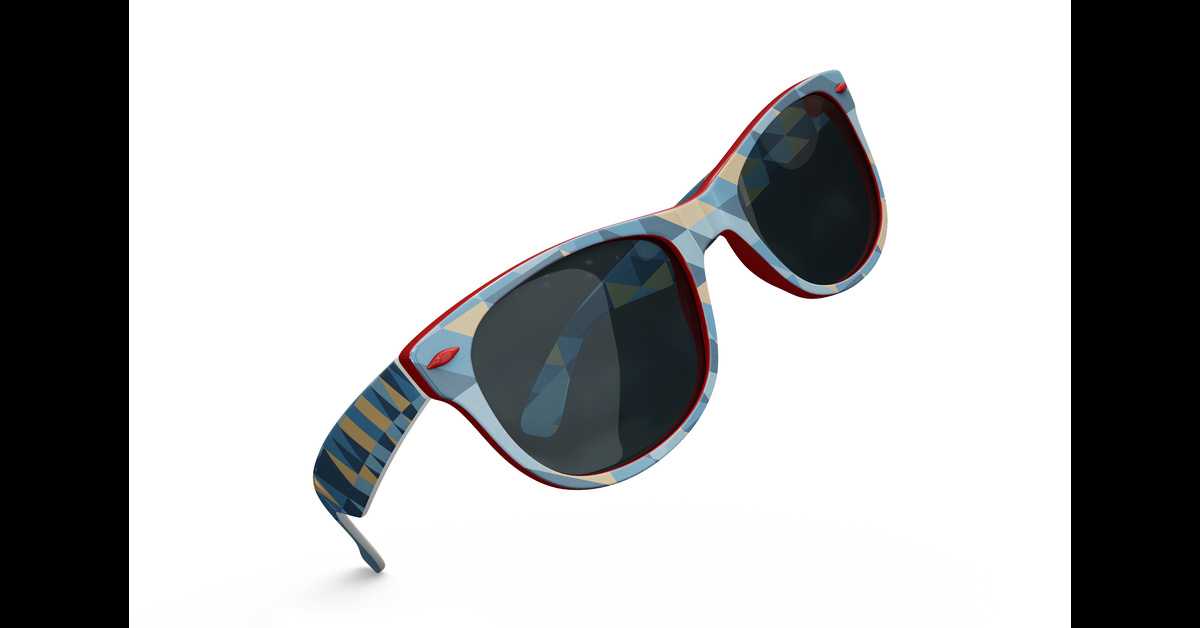Polarized sunglasses offer fantastic benefits for your eyesight. They reduce glare, enhance colors, and make activities like driving during the day much easier. When you put all these benefits together, you get something amazing: improved vision.
Imagine when you edit a beautiful photo on your phone or computer and use the “auto enhance” feature. It magically makes the picture look better and more vibrant. Now, think about stepping outside and seeing the world as if it’s always in “auto-enhance” mode.
Wearing polarized sunglasses gives you this feeling. It’s like having a hidden tool that constantly reduces glare and makes everything around you look clearer and more colorful.
However, there are times when polarized sunglasses might not be the best choice. Let’s explore the pros and cons to help you decide if they’re right for you.
What is polarization?
Polarization is a phenomenon where light waves, coming directly from a source, scatter in various directions—vertically, horizontally, and every angle in between. When you wear polarized sunglasses, they act like special filters for this “raw” light. These lenses selectively allow only vertically oriented waves to pass through, effectively blocking out horizontally oriented waves.
This filtering action is key to the standout feature of polarized sunglasses: reducing or even eliminating glare.
Glare occurs when light waves bounce off surfaces and return to our eyes, often horizontally oriented. These horizontal light waves struggle to penetrate the vertical filter of a polarized lens. As a result, polarized sunglasses excel at cutting down glare, providing clearer and more comfortable vision in bright conditions.
Benefits of Polarized Sunglasses:
Polarized sunglasses feature an almost invisible filter embedded in the lenses that effectively reduces the amount of reflected light entering your eyes. Beyond just reducing glare, these specialized lenses enhance visual sharpness and clarity, significantly improving your overall comfort and vision quality.
These lenses are available for both prescription and non-prescription sunglasses, making them suitable for light-sensitive individuals, including those who have undergone cataract surgery or those regularly exposed to bright sunlight through windows.
Enhanced Daytime Safety While Driving
Daytime driving often exposes us to bright sunlight that reflects off curved windshield glass, creating distracting glare. Polarized sunglasses can effectively block much of this glare, especially on clear or partly cloudy days.
By reducing windshield glare, polarized sunglasses make your road view more akin to what you’d see without a windshield, enhancing safety by allowing you to focus on the road without distractions.
Improved Visual Clarity for Fishing and Boating
Polarized sunglasses provide exceptional glare protection, particularly on water surfaces. Just look at the difference: one side of the lens shows a washed-out view due to reflective water, while the polarized side displays richer colors with clear, glass-like water. This enhancement is crucial for anglers, enabling them to see beneath the water’s surface to locate and identify fish before they break the surface.
For activities like canoeing, kayaking, or sailing, polarization transforms the experience, offering a new perspective akin to above-water snorkeling.
Vibrant Outdoor Experiences
Nothing beats the satisfaction of gazing at a vast, open sky that appears intensely blue. However, airborne particles in humid or polluted air can dull this blue sky, creating a whitish or yellowish cast.
Polarized lenses minimize reflections from these particles, allowing the sky to retain its deep blue hue. This vivid contrast against green foliage or white sand enhances your outdoor visual experience, offering a true visual treat.
Enhancing Photography
Polarizing filters are popular accessories for cameras, reducing reflections and intensifying natural colors. If you use these filters while taking photos, wearing polarized sunglasses lets you step back from the viewfinder and see a real-time preview of how your photo will turn out.
Are There Any Drawbacks of Polarized Sunglasses?
While polarized sunglasses offer many benefits, there are a few situations where they may not be ideal.
Night Driving
You might think that reducing glare would make night driving safer, but polarized lenses can actually limit too much light in low-light conditions, making it harder to see. Instead of special glasses, experts recommend keeping your car windows and headlights clean and ensuring your eyewear prescription is up to date.
Skiing
Polarization helps reduce glare from snow and ice, but it can also make it harder to see patches of ice or hardened snow, which can be hazardous for skiers. It’s usually better to use standard, non-polarized sunglasses or snow goggles when skiing.
Digital Screen Use
Polarized lenses can dim the brightness of certain digital screens, like those on smartphones, GPS devices, or calculators. This dimming effect typically occurs when you view the screen from an unusual angle, such as tilting your phone.
Are Polarized Sunglasses Better for Your Eyes?
Polarized lenses offer several advantages, although they do not provide additional UV protection compared to standard 100% UV lenses.
Reduce Glare and Improve Vision Clarity
Polarized sunglasses are excellent at filtering out glare and reflected light, particularly in outdoor settings near water, snow, or bright surfaces. By reducing glare, they enhance overall vision clarity, making objects and details easier to see.
Minimize Eye Strain and Blinding Glare
One of the key benefits of polarized sunglasses is their ability to significantly reduce eye strain and fatigue. By cutting down on brightness and blinding glare, especially in sunny conditions, they make it more comfortable to see for extended periods outdoors.
Enhance Vision in Bright Conditions
In environments with intense sunlight that can wash out objects or create harsh reflections, polarized lenses excel at improving visual acuity. This makes them particularly useful for activities like driving, where clear vision is crucial for safety.
Optimal for Outdoor Activities
Polarized sunglasses are highly recommended for outdoor enthusiasts engaged in activities such as driving, fishing, skiing, or hiking. They effectively reduce glare from surfaces like water, snow, or roads, which can otherwise cause visual discomfort and compromise safety.
Additional Comfort and Safety
Beyond reducing glare, polarized sunglasses provide a layer of comfort and protection against bright light, allowing you to enjoy outdoor activities with less eye strain and better visibility.
Considerations for Specific Situations
While polarized sunglasses offer many benefits, they may not be ideal for certain situations:
- Night Driving: Polarized lenses can restrict too much light in low-light conditions, potentially making night driving more challenging.
- Skiing: Skiers may find it difficult to detect patches of ice or hardened snow due to reduced brightness caused by polarization.
- Digital Screen Use: Polarized lenses can dim the brightness of certain digital screens when viewed from specific angles, although this effect is usually minimal.
Which is Better, UV or Polarized Sunglasses?
Choosing the right sunglasses is important for protecting your eyes from both UV rays and glare. Here’s a breakdown of the differences between UV protection and polarized lenses:
Understanding UV Protection
UV-blocking lenses shield your eyes from harmful UV rays emitted not only by the sun but also by tanning beds, lasers, and even fluorescent lights. It’s crucial to protect your eyes whenever you’re outdoors, as the sun’s UV rays are especially potent.
While plastic and glass lenses naturally absorb some UV light, adding a special chemical coating enhances UV protection. Look for sunglasses labeled to block 99-100% of UV light for optimal protection.
When You Need Polarized Lenses
Polarized lenses, while not providing UV protection, effectively reduce glare by filtering light. They’re ideal for outdoor activities like fishing, boating, golfing, or skiing, where glare can impair vision.
Keep in mind that polarized lenses may make it harder to see LCD screens due to the way they filter light. It’s essential to consider your specific needs and activities when deciding on sunglasses.
Conclusion:
In conclusion, polarized sunglasses offer a multitude of benefits for enhancing vision clarity and comfort in outdoor activities. Whether you’re driving, fishing, or simply enjoying the scenery, polarized lenses effectively reduce glare and improve visual sharpness, making your outdoor experiences more enjoyable. However, it’s important to consider specific situations where polarized sunglasses may not be ideal, such as night driving or viewing digital screens. When choosing the right eyewear, Lookscart is a reliable option that offers a wide range of sunglasses and prescription glasses to suit your needs. Explore Lookscart’s collection for stylish and functional eyewear that prioritizes eye protection and visual comfort in any setting.





